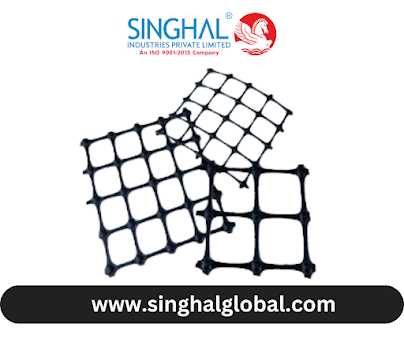Greenhouse Films Revolutionizing Farm Productivity
Transforming a farm into a productivity powerhouse is a goal shared by many agricultural enthusiasts and professionals. In the pursuit of this ambition, the utilization of greenhouse films emerges as a transformative tool. With a surge in interest in greenhouse farming across India and beyond, greenhouse plastic films have become the cornerstone of modern agricultural practices, unlocking immense potential for enhanced productivity and sustainability.
Understanding Greenhouse Films:
Greenhouse films India have redefined the landscape of farming by providing a controlled environment conducive to optimal plant growth. These specialized plastic films act as shields, regulating temperature, humidity, and light exposure within the greenhouse. By mimicking natural conditions and shielding crops from external adversities, greenhouse plastic films create an ideal ecosystem for cultivation.
The Evolution of Greenhouse Films:
Over the years, greenhouse plastic films have undergone significant advancements, catering to the evolving needs of farmers. Initially, these films were primarily designed for structural integrity and basic insulation. However, with technological progress, modern greenhouse films offer a myriad of features, including UV stabilization, infrared retention, and anti-condensate properties, ensuring superior performance and durability.
Enhancing Crop Yield and Quality:
The utilization of greenhouse plastic films revolutionizes crop cultivation by maximizing yield and quality. By regulating environmental factors such as temperature and humidity, these films create an optimal setting for plant growth throughout the year. Consequently, farmers can cultivate a diverse range of crops, irrespective of seasonal variations, thereby enhancing productivity and profitability.
Optimizing Resource Utilization:
One of the notable benefits of greenhouse films is their ability to optimize resource utilization. By creating a controlled environment, these films minimize water wastage and reduce the reliance on chemical inputs. Moreover, the enhanced crop yield facilitated by greenhouse plastic films ensures a more efficient utilization of land, making farming operations economically viable and environmentally sustainable.
Mitigating Climate Risks:
Climate change poses significant challenges to traditional farming practices, leading to unpredictable weather patterns and crop failures. In this context, greenhouse films emerge as a crucial adaptation strategy, mitigating the adverse effects of climate variability. By providing a shield against extreme temperatures, heavy rainfall, and pests, these films offer a buffer zone, safeguarding crops and ensuring a stable agricultural output.
Empowering Small-Scale Farmers:
Greenhouse films India have democratized agricultural innovation, empowering small-scale farmers to enhance their productivity and livelihoods. With affordable options available in the market, even marginal farmers can adopt greenhouse technology and diversify their crop portfolio. This democratization of technology not only fosters inclusive growth but also strengthens the resilience of rural communities against economic uncertainties.
Promoting Sustainable Agriculture:
In an era marked by environmental degradation and resource depletion, the adoption of sustainable farming practices is imperative. Greenhouse plastic film play a pivotal role in promoting sustainability by reducing water consumption, minimizing chemical usage, and curbing greenhouse gas emissions. By embracing greenhouse technology, farmers contribute to the preservation of natural resources and the mitigation of climate change impacts.
Fostering Innovation and Research:
The widespread adoption of greenhouse films has spurred innovation and research in agricultural science. Researchers and technologists are constantly striving to develop advanced films with improved functionalities, such as enhanced light transmission and disease resistance. Moreover, ongoing research endeavors focus on optimizing greenhouse designs and management practices to further enhance productivity and sustainability.
Overcoming Challenges and Building Resilience:
While greenhouse films offer numerous benefits, their adoption is not devoid of challenges. Issues such as initial investment costs, technical expertise, and maintenance requirements pose barriers, particularly for small-scale farmers. However, concerted efforts by government agencies, research institutions, and industry stakeholders can address these challenges through capacity building, financial support, and knowledge dissemination, thereby enabling widespread adoption and resilience building.
Conclusion:
In conclusion, greenhouse films represent a paradigm shift in modern agriculture, enabling farmers to transform their farms into productivity powerhouses. By harnessing the capabilities of Greenhouse plastic films, farmers can optimize resource utilization, mitigate climate risks, and enhance crop yield and quality. Moreover, the democratization of greenhouse technology empowers small-scale farmers and promotes inclusive growth. As we navigate the challenges of the 21st century, greenhouse films emerge as a beacon of hope, fostering sustainability, innovation, and resilience in the agricultural sector.
FAQs
How do greenhouse films contribute to water conservation?
By creating a controlled environment with reduced water loss through evaporation, greenhouse films help conserve water resources, making them ideal for regions facing water scarcity like many parts of India.
Are greenhouse films customizable for different types of crops?
Greenhouse plastic films come in various thicknesses and compositions, allowing for customization of light transmission, heat retention, and humidity levels to meet the specific needs of diverse crops.
Do greenhouse films protect crops from pests and diseases?
Yes, by acting as a physical barrier, greenhouse films prevent pests and pathogens from directly accessing crops, reducing the need for chemical interventions and promoting healthier plant growth.


.png)
Comments
Post a Comment